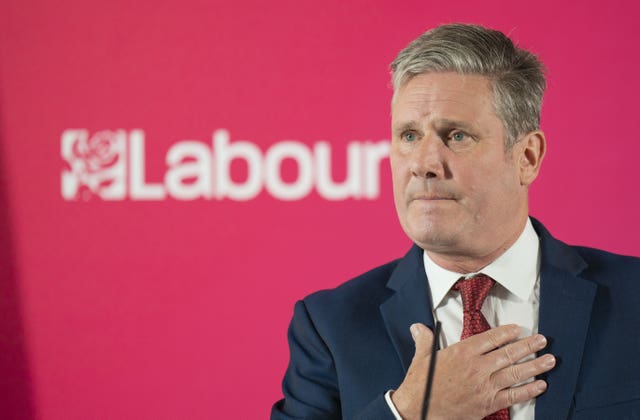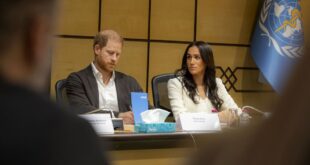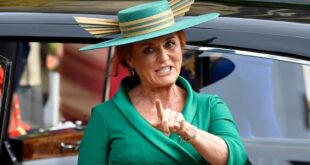Sir Keir Starmer has said he changed his mind on nationalisation because of ballooning post-pandemic debt, indicating that a Labour Government would fix “broken” water and energy markets through regulation first.
The Labour leader distanced himself from his own pledge when he was running for the party’s leadership in 2019 to support “common ownership of rail, mail, energy and water”.
He told BBC Breakfast: “We’ve got to recognise that after the pandemic we’re in a different situation financially to the situation that we were in before, and we want a responsible Government that says if we’re going to do something we will tell you how we’re going to pay for it.
“The single most important thing is how we grow the economy, re-energise the economy, and that can’t be reduced to a discussion about nationalisation.”
Sir Keir stressed his “pragmatic” approach, saying that for most utilities “the answer is going to lie in regulating the market, changing the market, rather than simply taking things into public ownership”.
However, he said Labour would stick to plans to nationalise the railways if it won the next election.
He told ITV’s Good Morning Britain: “Rail is a bit of an outlier because obviously large parts of rail are already in public ownership, and we would continue that, so the rail situation is different because of the way their contracts are run.
“But for me, I’m not ideological where I say public is good, private is bad, or private is good, public is bad.”
 Labour leader Sir Keir Starmer highlighted a pragmatic approach (Danny Lawson/PA)
Labour leader Sir Keir Starmer highlighted a pragmatic approach (Danny Lawson/PA)Asked about nationalising Royal Mail, Sir Keir said: “It’s very hard to see how you can nationalise within the fiscal rules, but that’s not to say that there isn’t a problem that needs fixing there.”
He highlighted the party’s “strong fiscal rules” to control public spending and said that “after Covid, there is a question of what we can afford going into that election”.
Sir Keir reiterated he was dropping his predecessor Jeremy Corbyn’s manifesto for Government and was starting with a “clean slate”.
“I don’t want a Labour Party that, as it was in 2019, was basically saying we can spend on anything.
“We’ve reversed those 2019 manifesto positions because we needed to show the country that we’re credible, we’re responsible on the economy”.
With my Labour Government, we will have:
More innovationMore new technologyMore research and developmentMore start ups
So Britain will be the best country in the world to start a new business. pic.twitter.com/l9Q1nQShhi
— Keir Starmer (@Keir_Starmer) July 25, 2022
Sir Keir was forced to clear up the party’s stance on nationalisation a day after conflicting statements by members of his shadow cabinet caused some confusion.
Shadow chancellor Rachel Reeves had said the policy was not compatible with the party’s new fiscal rules, while shadow transport secretary Louise Haigh said Labour was “committed to public ownership of rail”.
During Tuesday morning’s media rounds, Sir Keir also slammed Rishi Sunak and Liz Truss’s first head-to-head TV Tory leadership debate, which he said showed the Conservatives had “lost the plot”.
After “10 years where people haven’t seen their wages go up” and are “really worrying” about their bills and inflation, “what I’m not hearing from these contenders is an answer to that problem,” according to the Labour leader.
He declined to say whether a Labour Government would give public sector workers the inflation-matching pay rises they want.
He told BBC Radio 4’s Today programme: “I completely understand why so many working people with stagnant wages and high prices need to see some movement.
“I support the right to strike but I think the role of Government is to facilitate, make sure those negotiations take place to an agreed settlement”.
He said he would again tell his shadow frontbench not to go on the picket lines outside railway stations during upcoming strikes, arguing: “A Government doesn’t go on picket lines, a Government tries to resolve disputes.”



